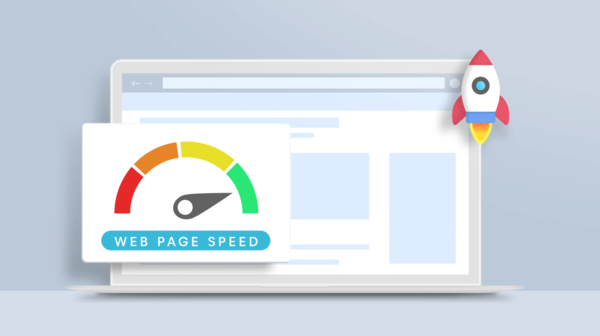
Speed is a necessary determinant of your website’s performance. It is safe to say that your website hosting service and website speed go hand in hand. With reduced patience levels and attention spans, users expect immediate access to the information they seek.
A reliable web host in Australia can offer you hosting services and resources that significantly improve your website’s speed and performance.
This guide dives deep into strategies that can help you create a faster and speedy website.
Ways to Improve Website Speed: Create a Lightning-Fast Site
● Implement Caching
Caching refers to temporarily storing some website elements, like images, JavaScript and CSS, on the user’s device or the server. When the user makes a request the next time, the server does not have to process those stored elements, reducing the number of requests and loading time and increasing website speed.
● Compress Image Size
Media, i.e., images and videos, are often the most important elements on one’s website. However, large-size images consume valuable bandwidth. This, in turn, slows down the load times.
However, you can optimise and compress these images using tools like Tiny PNG and JPEG-Optimiser. Ensure that the images do not lose their quality in the process.
● Leverage CDN Technology
Content Delivery Network (CDN) consists of servers that are spread across the globe that serve content based on the user’s geographical location.
For example, if your user is located in America, the CDN server closest to their location will transmit the data on behalf of your server. This reduces resource consumption and processing tasks. You can significantly improve website speed by leveraging the power of CDNs.
● Limit HTTPS Requests
Every resource requested on your website creates an HTTPS request that the browser must process. This process and its continuous repetition slow down your website. To improve website speed, you can minimise or limit the number of HTTPS requests to streamline loading time.
● Minimise Third-Party Scripts
Too many third-party scripts can add substantial weight to your website and consequently slow your website speed down. Some of these third-party scripts are essential. Hence, monitoring and minimising these scripts is important in order to improve website speed.
● Optimise Database
If your website is completely database-oriented, high traffic or resource-intensive, you need to optimise your database and website with careful consideration. You must delete unused and outdated data and remove spam comments. This will help enhance response time and improve website speed, especially for large sites with high traffic.
● Better Hosting Services
If you find yourself following all the best practices to improve website speed and are still feeling stuck at the same speed, review your website hosting package. Inadequate resources, lack of security and poor server configuration can slow your website speed.
However, if you migrate to a better provider, you can see significant improvement. For instance, moving from shared hosting to cloud hosting.
● Check Website Speed
Lastly, it is important to monitor and check your website speed regularly. There are multiple website speed test tools available on Google, like Pingdom, Google PageSpeed Insights and GTmetrix. You can search “test my website speed” and you will find the software websites easily.
Final Thoughts
You can increase your website speed by optimising various factors of your server and website. In today’s day and age, maintaining a competitive edge is absolutely important. When you improve website speed, you see the benefits in both performance and user satisfaction.